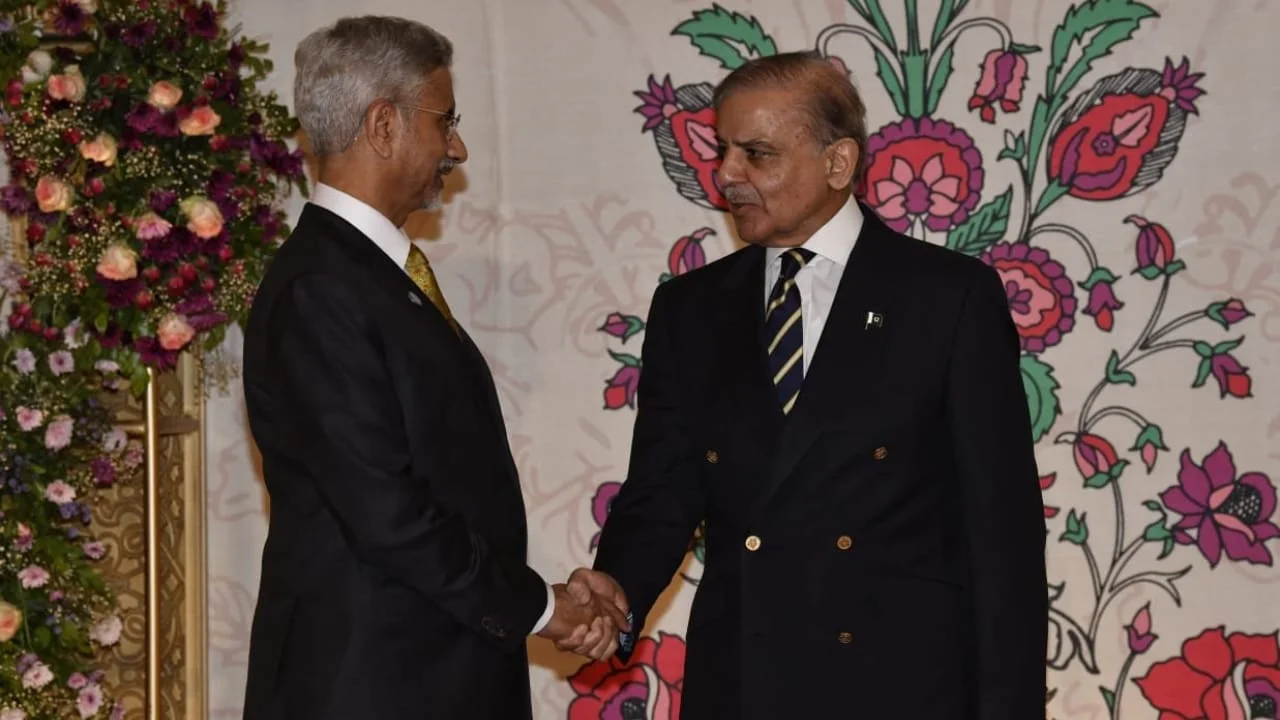External Affairs Minister Subrahmanyam Jaishankar arrived in Islamabad on Tuesday to attend a Shanghai Cooperation Organisation (SCO) conclave.
Senior Pakistani officials received Jaishankar at the Nur Khan airbase upon his arrival.
He also exchanged pleasantries with Pakistan Prime Minister Shehbaz Sharif. This interaction occurred at a dinner reception hosted by the PM at his residence. The reception honored the delegates of the SCO member countries.
This is the first visit by a senior Indian minister to Pakistan in nearly nine years amid continuing strain in relations between the two neighbours.
The last visit to Pakistan by a foreign minister was in 2015 by Sushma Swaraj. She had travelled to Islamabad in December 2015 to attend a conference on Afghanistan.
Pakistan is hosting the two-day SCO Council of Heads of Government (CHG) summit on October 15 and 16. The two-day meeting will discuss ongoing cooperation in fields of economy, trade, environment and socio-cultural linkages and review the performance of the SCO.
Pakistan assumed the rotating chair of the SCO CHG, the second highest forum within the SCO, for 2023-24 at the previous meeting, held in Bishkek in October 2023.
Both sides have already ruled out any bilateral talks between S Jaishankar and his Pakistan counterpart Ishaq Dar on the sidelines of the SCO heads of government summit.
Recently, Jaishankar had said “like with any neighbour, India would certainly like to have good relations with Pakistan.”
“But that cannot happen by overlooking cross-border terrorism and indulging in wishful thinking,” he had added.
Also See: S Jaishankar arrives in Islamabad to attend meet
Tight security
To ensure the safety and security of the guests arriving for the 23rd SCO summit in Islamabad, the Pakistan has deployed Army rangers to safeguard the event, key government buildings, and the Red Zone area.
According to ANI, authorities have stationed rangers throughout the capital. They have temporarily shut down several businesses and closed key routes to minimize security risks in Islamabad and Rawalpindi.
The Pakistan government deployed over 10,000 police and paramilitary personnel to secure about 900 delegates arriving for the event.
This news is sourced from Hindustan Times and is intended for informational purposes only.






![Ukrainian and Russian flags with soldier silhouettes representing ongoing conflict. [Image via Atlantic Council].](https://southasiatimes.org/wp-content/uploads/2026/02/2022-02-09T000000Z_1319661209_MT1NURPHO000HXCNME_RTRMADP_3_UKRAINE-CONFLICT-STOCK-PICTURES-scaled-e1661353077377.jpg)